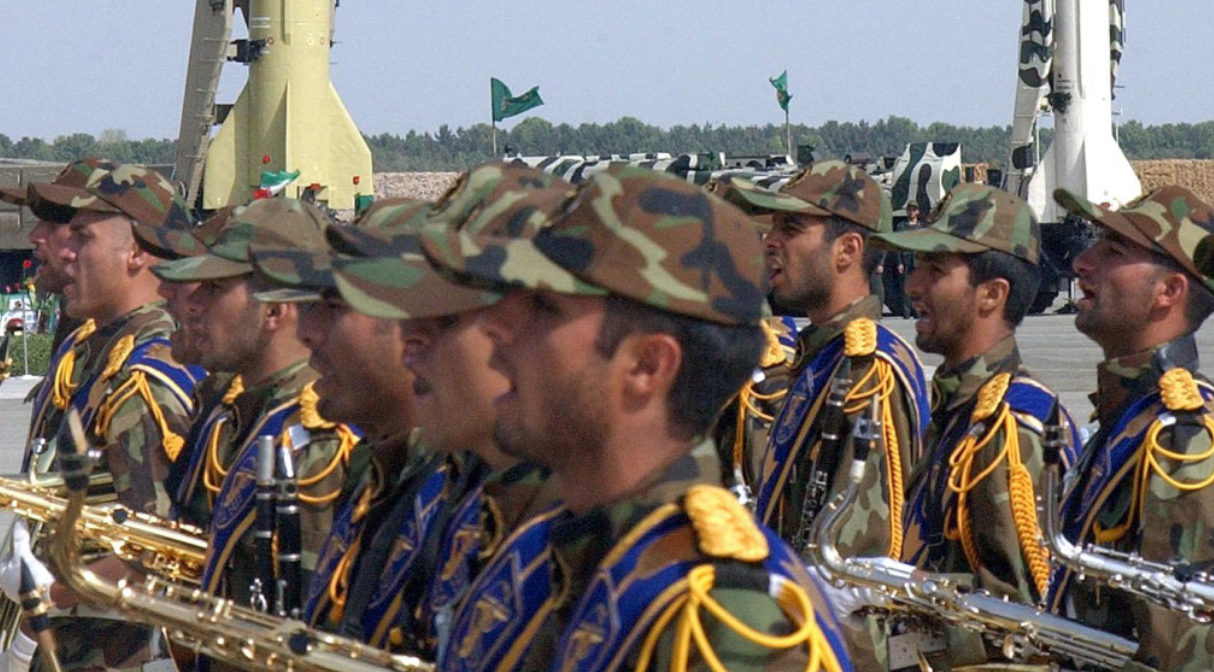
June 08, 2023, 11:14 When Reza Pahlavi, Iran’s exiled prince and son of the last shah, landed in Israel in a surprise visit to coincide with Holocaust Remembrance Day in mid-April, it led to worldwide coverage.

Behind his visit was an effort to restore the bond between Israel and Iran by promoting the “Cyrus Accords”, a peace initiative (not dissimilar to the Abraham Accords with four Arab nations) named after the Persian ruler who allowed the Jewish people returned to Judea from Babylonian exile in 538 BCE. Pahlavi’s tweet announcing his unanticipated trip garnered five million views. His the official statement read: “The Iranian and Jewish people have ancient bonds dating back to Cyrus the Great and Queen Esther. As the children of Cyrus, the Iranian people aspire to have a government that honours his legacy of upholding human rights and respecting religious and cultural diversity, including through the restoration of peaceful and friendly relations with Israel and Iran’s other neighbours in the region.”
Such an alliance would see Israelis and the people of Iran bound by shared economic and political interests in a future, post-Ayatollah Iran. No such agreement is, of course, going to occur while an increasingly isolated gerontocracy retains power in Tehran. Tehran and Jerusalem have been locked in a seemingly perpetual shadow war, with stealth attacks on land, by air, by sea or by proxy. With Iranian leaders regularly vowing to wipe Israel off the map, it’s hard to imagine the two countries ever enjoying amicable peace. However, some are more hopeful given the evolving domestic situation in Iran. Since last September the Islamic Republic has faced sustained waves of anti- government protests in one of the most existential challenges to its system of government in its 44-year rule, after Mahsa Amini, a 22-year-old Kurdish Iranian woman died in police custody for allegedly not wearing the mandatory hijab appropriately.
The trip was lauded as a slap in the face to a ruthless clerical regime in Iran that has beaten and impoverished its people while remaining resolute in its quest for Israel’s destruction. “The Crown Prince of Iran …[is] the most senior Iranian personality to ever pay a public visit to Israel,” read a statement issued by Israel’s Ministry of foreign affairs. “The Crown Prince symbolises a leadership different from that of the Ayatollah regime, and champions values of peace and tolerance, in contrast to the extremists who rule Iran,” it added.
Pahlavi fashions himself as an Iranian patriot hoping to one day return to a secular and democratic Iran. (He has lived in exile in the USA since 1978, a year before his father, the Shah, was overthrown.) “How would the PR images of Pahlavi with [Gila] Gamliel glued to his side or the intense tete-a-tete with Netanyahu look if Israel did strike Iran?” questioned Arash Azizi, an Iranian historian.
The visit also played into Tehran’s false narrative that anti-establishment protests in Iran are being orchestrated by Israel and the United States. But Pahlavi’s proposed friendship between Iran and Israel is not without modern precedent. In 1950, Iran was the second Muslim-majority nation (following Turkey) to formally recognise Israel as a sovereign state.
Even before the 1950s, the Shah’s government played a critical role in saving approximately 5,000-6,000 Jews, mostly children, who were fleeing Eastern Europe during the Second World War. Many of those refugees, eventually became known as the “Tehran Children”, reached British Mandatory Palestine in 1943.
Israel and Iran maintained close ties for 30 years, starting in the 1950s during the reign of Iran’s last monarch, Mohammad Reza Pahlavi. Their tacit collaboration on matters related to energy, trade, intelligence, agriculture, academia — and even military arms — was rooted in a mutual wariness of threats emanating from neighbouring Arab powers and the Soviets. High on the foreign policy agenda for Israel’s founding prime minister, David Ben- Gurion, was his “periphery doctrine”, whereby he sought to counterbalance Arab
hostility by establishing bonds with non-Arab states. That’s largely why Ben- Gurion cultivated ties with Iran, as well as Turkey and Ethiopia. Few Israelis were as critical to building close ties between Israel and Iran from the 1950s to 1979 as Meir Ezri, born in the Iranian city of Isfahan before immigrating to Israel in 1950, who became Israel’s ambassador to Iran from 1958 to 1973. Under Ben-Gurion, Ezri worked with the Jewish Agency to facilitate the absorption of Iranian immigrants coming to Israel.
The Shah awarded him the highest decoration, the “Taj”, for strengthening ties between Iran and Israel. Ezri also received the “Shir-O-Khorshid” (Lion and Sun) medal from the Red Crescent for Israel’s assistance to Iran after a devastating earthquake killed thousands of Iranians in the north-western city of Qazvin in 1962. Not only did Israel provide emergency aid, but it also dispatched planning experts to work alongside the Iranian Ministry of Agriculture in rebuilding the region.
Iranian-American journalist Karmel Melamed even cites an episode in Ezri’s life when Iran’s former chief rabbi Yedidia Shofet approached Ezri and asked for Israel’s help to treat the ailing Iranian Ayatollah Malek Al-Motekalemin. Ezri persuaded Israeli officials to help facilitate the ayatollah’s travel to Hadassah Hospital in Israel, where he was treated for a serious illness.
Jason Brodsky, policy director of United Against Nuclear Iran, describes the Islamic Republic’s enmity today towards Israel as “an aberration in Iranian history”. Not only do the two countries not share any border or have any territorial disputes, but Jewish people have been living in Persia for more than 2,700 years. A 1985 CIA report declassified in 2011 highlighted the deep security partnership the countries enjoyed prior to 1979: “Israel regularly sold armaments to Iran during the Shah’s reign, mainly small arms, mortars and ammunition… the arms sales gave a significant boost to Israel’s fledgling defence industries.”
Brodsky adds that the security partnership extended to advanced weaponry, citing Project Flower, a joint Israeli-Iranian military effort focused on developing advanced missile systems.
That same CIA report noted that at one point Iran became Israel’s chief supplier of crude oil until Israel began operating the Sinai oil fields following its conquest of the territory in the Six-Day War. “After Israel returned the fields to Egypt under the Sinai II Agreements in 1975, Iran once again became the chief source of oil, supplying about 70 per cent of Israel’s requirement until the overthrow of the Shah in 1979.”
According to Ilan Berman, senior vice president of the American Foreign Policy Council in Washington, “For Israelis, across generations, there’s a clear aspiration for something different than the current confrontational stance between the two countries.”
Berman notes that Israelis understand that the Islamic Republic, currently constituted, represents an existential threat with which reconciliation is not possible. The current ferment taking place within Iran has given much hope that the Islamic Republic might not be so permanent after all — and if the regime falls, better relations might be possible. “Alienation from the regime, which has been building for years, is leading to the formulation of an alternative identity and outlook among many,” Berman adds.
“That alternative identity emphasizes things that the current regime isn’t: pro-Western, liberal and inclusive. Younger Iranians have clearly gravitated to a more pro-Israeli stance as a result of their rejection of the current ruling order.”
For now, reconciliation remains a remote fantasy, but before the Abraham Accords were signed in 2020, the same thing was said of Israel making peace with its Arab neighbours.
Jonathan Harounoff is a British journalist based in New York City @JonathanHaroun1






